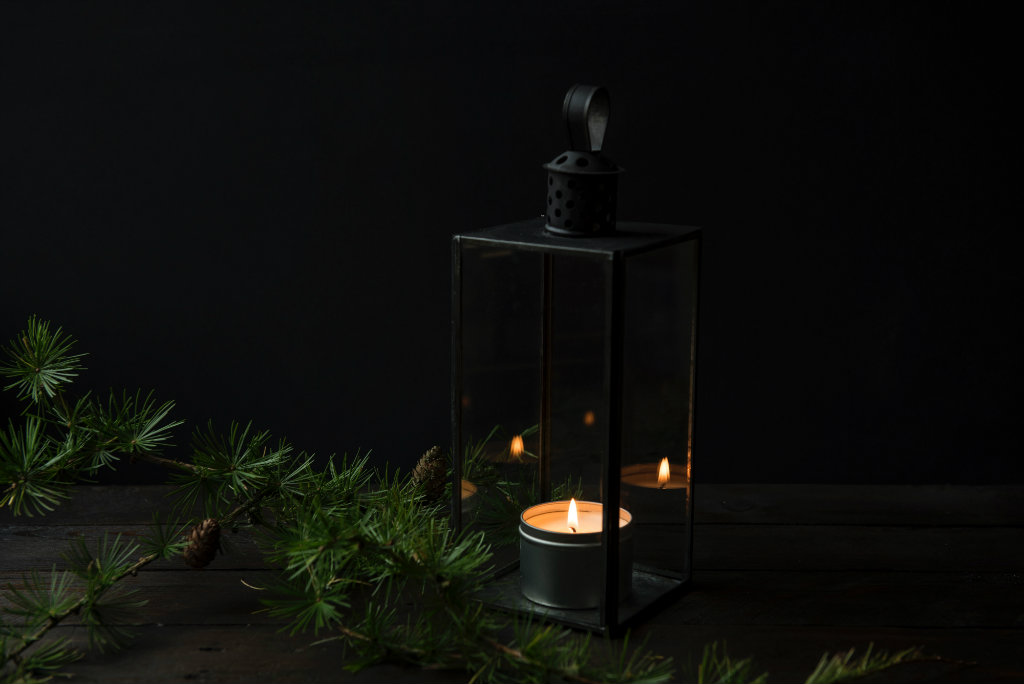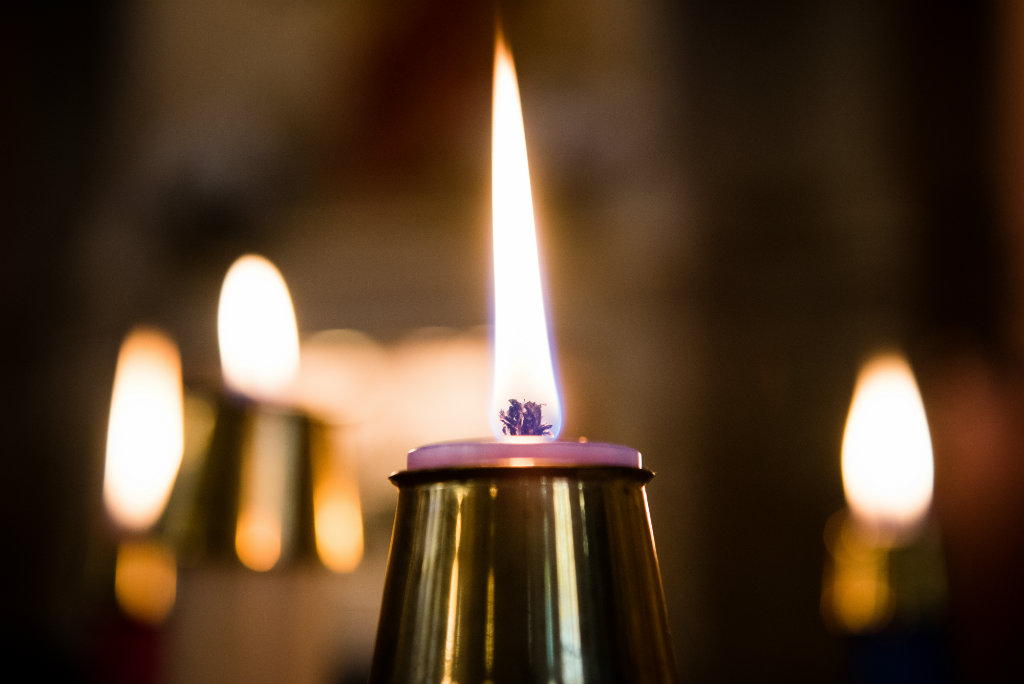by Emily Olson
At a Reformation gathering in late October, surrounded by the warm tones of fall foliage, pumpkins, and Luther’s roses, a friend who works in retail told me of her current workload.
“Tonight’s the night my coworkers unload all the holiday stock,” she said. “Christmas starts tomorrow.”
Her quip is sadly too true when it comes to American commercial culture. In the waning months of the year, we witness seemingly overnight transformations of merchandise displays from garish orange and black, purple and gray Halloween spookiness to red, white, and green, silver and gold bedazzling Christmas tree twinkles. Sometimes the displays coexist on store floors in a kind of brassy holiday overdose. And the marketplace push of holiday ware appears to continually move backwards. We groan at the Christmas countdowns that appear in July or August and rightly bemoan the loss of seasons. But if we’re honest with ourselves, we have to acknowledge that we don’t just half-heartedly capitulate to the merry jingles. We’re the reason Christmas comes early.
Let’s face it. Though we ostensibly know about Advent (the penitential church season that begins this this Sunday and precedes our celebration of the birth of Christ), most of us choose to skip it for the soft glow of a secularized holiday. We festoon our homes in garland, indulge in bonbons, and buy, wrap and even open gifts long before we’ve ever heard readings from Luke 2 in church. And while we know there are no hard and fast rules about when to haul out the holly, we often exercise our Christian freedom in such matters a little too freely at times, kind of like eating too many sugarplums just because we can. At best, our chase of cheery, festive markers of Christmas that we find in the marketplace echoes our true and deep longings for lasting joy and fulfillment. But accelerating our celebrations is unlikely to provide the fix we need.
So what happens when, the occasional midweek service notwithstanding, we effectively ignore Advent?
I know what happens, because the consequence has buried me like a slow-moving avalanche. By the time we finally reach Christmas Eve — opening day, as it were, of the wondrous season celebrating our savior’s birth — we are exhausted with Christmas. We want it to be over. After six solid weeks (or more) of Christmas carols, we are ready to sing “Silent Night” at the midnight service and be done with it for another year. By New Years’ Eve — er, the Feast of the Circumcision of our Lord, when He was just one week old — we’ve not only skipped Advent. We’ve checked out of Christmas.
Thankfully, giving Advent our full attention is just the place to start to avoid Christmas burnout. Derived from the Latin word for “coming into,” Advent methodically prepares us to observe one of the most holy events in the history of the world. It isn’t a stodgy stick-in-the-mud season of no-nos. Rather, it is a thoughtful, penitential time of reflecting upon the steadfast promises of God. We hear from prophets of old foretelling the savior, including Jeremiah, who prophesied five hundred years before the birth of Christ: “Behold, the days are coming, says the Lord, when I will raise up for David a righteous Branch,” (23:5). In the face of King Ahaz’s weak faith, Isaiah assured Israel (writing even before Jeremiah) that God always remains true to his word: “Therefore the Lord himself will give you a sign. Behold, the virgin shall conceive and bear a son, and shall call his name Immanuel” (7:14). Over years, decades, and centuries, God repeatedly reminded his people of his promise to deliver them. So we also, during the four weeks of Advent, cherish and anticipate the hope of God’s people with John the Baptist, who exhorts wondering crowds to confess their sins and prepare for incarnate God to come (Mark 1:1-8). We, too, hear how our long-expected savior will cover our sins and forgive us (Matt. 26:28).
One of the best things about Advent, I think, is how simple it is. We wait with listening ears in the quiet stillness as we meet together in Christ’s church. Advent wreaths composed of a bit of greenery and four candles help mark the season in our sanctuaries and homes. As our days become darker and colder, we turn our faces toward the flickering candlelight and hear of the light of the World (John 8:12). We fast, pray and contemplate, not because such actions merit us any righteousness, but because they discipline us to accept with patience and building joy what Christmas brings us. Advent, this wonderful, preparatory season, brings us not an artificial panorama of commercial allure but God’s incarnate promise of eternal life. Though we can’t fully escape the secular trappings around us, we can focus our eyes on the one thing needful and strive to remember and pray the age-old words that God still answers: O come, o come, Emmanuel.
Emily Olson is a member of Trinity Lutheran Church, Casper, Wyoming.





I cherish Advent and I am teaching my grandsons to do the same! I started to purposefully teach Advent hymns to my grandsons last year using CPHs My First Hymnal. We also decorated meaningful Advent crafts that taught about the coming of Christ. There is a lot to love and learn during Advent!